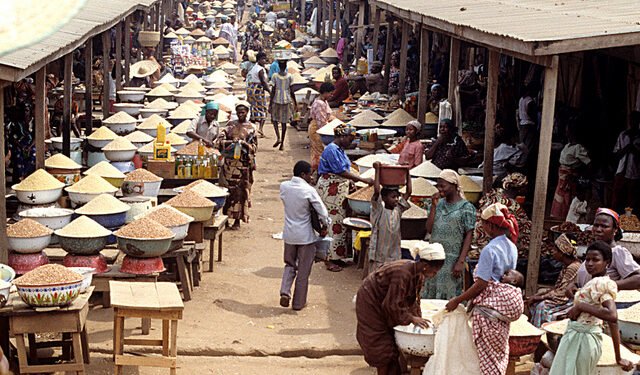Some traders in Ibadan metropolis, on Saturday, said they would continue to collect the old naira notes for transactions, in line with the recent ruling of the Supreme Court.
Some of the traders, who spoke with the News Agency of Nigeria (NAN), said they had no choice than to continue to receive the old naira notes, as the new ones were not available for transactions.
NAN correspondents, who visited some markets in Ibadan metropolis, observed there was no rejection of old notes, as sellers received both new and old naira notes.
Mr Raji Adegbola, a meat seller at the Bodija market, said both the old and the new naira were being used for transactions.
“We heard that the court had said we should keep spending the old notes and that is what we are doing.
“It is not every time that transfers go through. So we use whatever means available to keep our daily lives going,” Adegbola said.
Also, Mrs Mutiat Aina, a spice seller, said although she preferred to collect new naira notes from her customers, she, however, had no choice than to collects old ones.
Aina, however, expressed the regret that online money transfers had had bad effects on her business.
“I had received some fake alerts since the naira crisis started and it had badly affected my business,” she said.
Mrs Tope Coker, a customer, urged government to help the masses by ensuring that both the old and new naira notes were in circulation as legal tender until the new ones were available in large quantity in order to reduce the hardship currently being faced by Nigerians.
“I’m in support of the call that the two naira notes should run for a while, while the withdrawal limit over the counter should be increased.
“Whatever good intention the CBN might have, it must take into consideration the reality on ground and and do everything possible to lessen the burden of Nigerians,” Coker said.
NAN also reports that some traders at Omi-Adio market are still collecting the old naira notes, including commercial motorcyclist plying the axis.
A pepper trader at Apata market, Mr Waliu Abdullahi, said he was still collecting the old naira note from his customers in accordance with what the information he heard.
According to him, whatever the government says, we have to follow it. Since government has not said that we should stop collecting them, we will continue using the old notes for transactions.
A commercial driver, Christopher Olakunle, said drivers are still collecting the old and new naira notes, stressing “anyone the passengers give to us, we collect.”
Olakunle said that any driver who rejected the old money was not ready and prepared for work, as the barely available.
A petty trader, Mrs Mary Anjolaoluwa, said that the naira scarcity had affected her business badly, especially with the confusion that trailed the spending of the old naira notes.
She, however, expressed happiness with the Supreme Court’s pronouncement on the old naira notes, saying it had brought great relief.
“I have been collecting old naira since and there is relief. The only problem now is the non-availability of cash from banks and POS,” Anjolaoluwa said.
However, the staffers of the card collection section of the antenatal unit of the State Hospital, Ring Road, Ibadan, declined accepting old naira notes from expectant mothers who came for their routine checkups.
They insisted that the old naira notes were no longer accepted in the hospital.
NAN observed that some of the pregnant women who were not with new naira notes appeared helpless and frustrated, as they could not lay their hands on the new naira notes.
NAN also observed that buying and selling were not so much hindered in Ibadan city, as both the old and new naira notes were being used for transactions.
An official of a commercial bank, who preferred anonymity, however, expressed concern over what he called the failure of Central Bank of Nigeria (CBN) to issue any official directive to banks on the circulation of old naira notes.
This, he said, had created confusion for the banks, as they were not getting enough new naira notes from the apex banks, while customers kept thronging the banks to demand for the new currencies.
(NAN)










